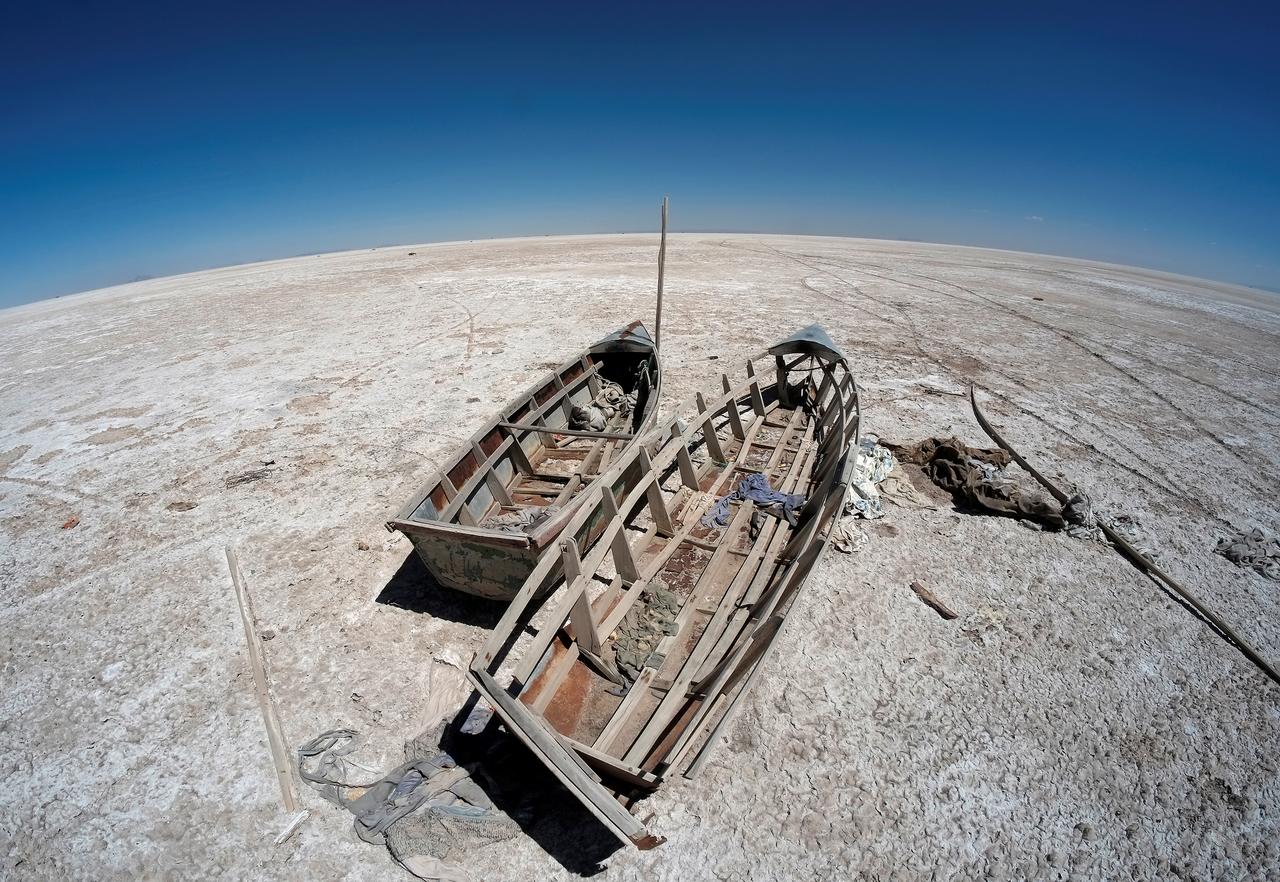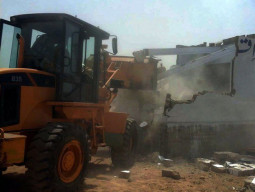
As it concluded on Sunday, the Lahooti Melo, held at Mehran University of Engineering and Technology, hosted a panel discussion on the role of women in climate change, titled ‘Women Victors, Not Climate Victims,” on Sunday.
Moderated by rights activist Dr Arfana Mallah, the speakers maintained that the role of women in climate action cannot be ignored, as they are active agents of change towards sustainable futures, with consistent sustainable practices incorporated into their daily lives.
Climate change and rural women
“In the past few years, women have really found their voices and recognised the fact that they play vital roles in society, with sustainable practices and climate change being no exception,” observed Ebrahim.
Shabina Faraz, an environmental journalist who aims to make climate issues accessible to the masses, asserted that climate change is an immediate and local problem and cannot be put off as an elite issue. “Pakistani women are at the frontline of climate-friendly practices, continually contributing positively to the environment without ever having gotten any education, both generally and especially on the subject,” she said, adding that rural women were adapting to climate change and mitigating it, without any scientific knowledge or training.
In her view, the impact of climate change is not simply that of the immediate environment changes, but also the negative social practices emerging as a result of climate catastrophes.
The ramifications of environmental catastrophes in some cases have meant that women are now faced with child marriages more than ever before, she pointed out. Displaced families adopt a mind-set that leads them to believe that their daughters would be safer and more settled once they have a provider and protector in the form of a husband. They neglect the trauma, psychological and physical harm that a young girl can face when put in a situation like that, she maintained.
Dr Mallah mentioned the women of a Badin village who have been collecting trash, reducing and up-cycling it and turning it into toys which they later sell. “These women have no real climate motives but it cannot be ignored that they are positive contributors towards sustainability,” she remarked.
Meanwhile, Nazo Dharejo, a land-owner, shed light on social changes that have led to women increasingly doing the farm-work, whereas men contribute to the extent of loading the harvested crop onto trucks for transport.
According to her, all the work, from sowing and ploughing to reaping the crop is done by female farmers, who are also simultaneously expected to take care of all domestic chores. With increasingly difficult climate conditions, these burdens are made worse.
“I find most women in my service are under immense mental duress,” stated Dharejo, maintaining that the shortage of water has meant smaller crop yields, negatively impacting everyone from the landowner to the farmer as incomes drop.
Climate and migration
Discussing the impact of migration, Faraz highlighted the increasing number of landslides occurring in rural mountainous areas, which have levelled homes and changed the whole terrain of areas.
These areas largely consist of women, the elderly, and children due to the men having migrated to urban cities for work, leaving the women to engage in disaster management while also caring for their families and working to provide sustenance, she explained. In some cases, she said, these women found their houses buried in the ground, yet they still braved through difficult conditions.
Dr Gulnaz Anjum, a social psychologist and researcher, pointed out that the effects of climate change have also led to increased violence against women because of greater psychological burdens. She added that women in urban areas face more violence as compared to those in rural areas, due to the lack of a community network.
Climate and female representation
The speakers also emphasised the lack of representation of women in legislative bodies, adding that their contributions were ignored with the justification that climate change was not a women’s issue. As a result, female perspectives are left out of the discussion.
“We must have intersectional discussions on the issue so that we do not neglect the gender perspective in the field,” insisted Samreen Khan Ghauri, an environmental documentary maker. Globally, women are recognised as a high risk group for climate change, with their sexual and reproductive health being greatly impacted, she said; however, national narratives have largely ignored them with regards to the issue.
Faraz further highlighted how the media and the government neglected to record women’s achievements, giving the illusion that most climate-related work is being done by men alone. “We have also excluded women from decision-making processes,” she claimed. “If women are not included, the policies generated will never be female friendly.”
The speakers underlined the need to put women at the core of the conversation, pointing out that they are tied to natural resources, providing and gathering firewood, grass and water, among many other activities that centre on the environment.
“It is important to remember that climate change is a problem that affects every being present in the living environment,” concluded Dr Mallah. “The conversation, then, is not about whether one group is more or less affected by it, but assessing how and why different groups are affected and what can be done to mitigate these effects.”
Published in The Express Tribune, February 17th, 2020.




1719660634-1/BeFunky-collage-nicole-(1)1719660634-1-165x106.webp)












COMMENTS
Comments are moderated and generally will be posted if they are on-topic and not abusive.
For more information, please see our Comments FAQ